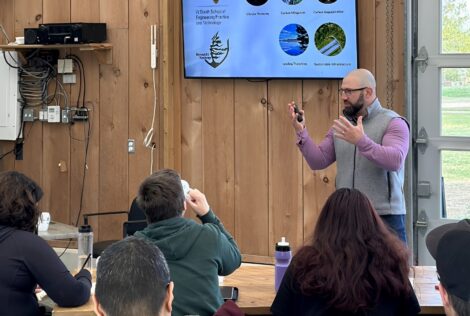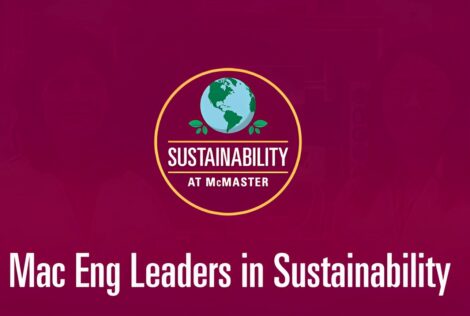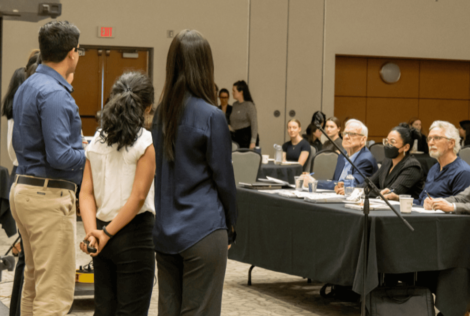

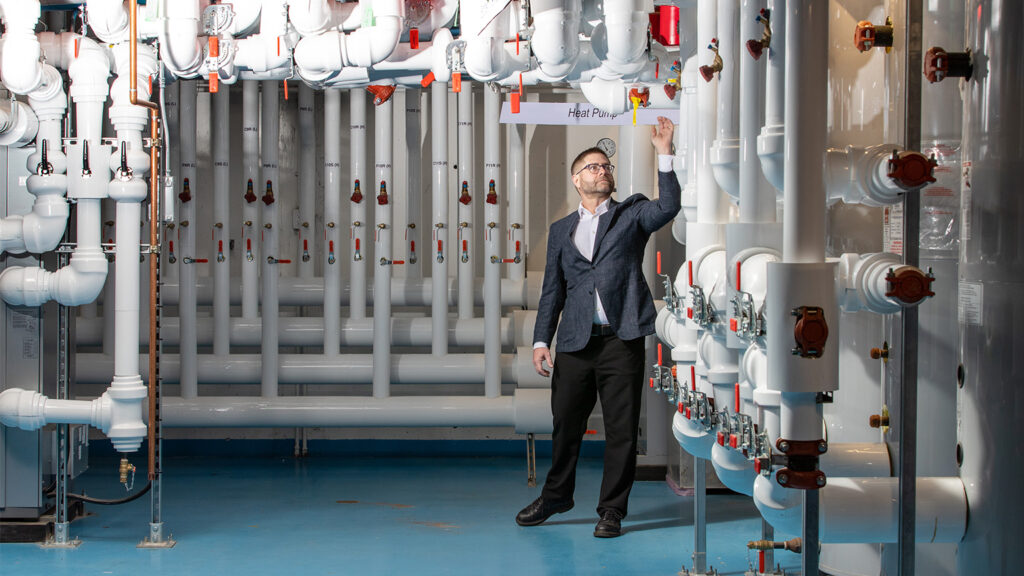
Carbon-free heating using thermal networks
Underground thermal networks have the potential to revolutionize how Canadians heat their homes while helping to reduce carbon emissions, writes Jim Cotton, professor of mechanical engineering. A thermal network is a system of insulated, underground pipes that directly distribute heat to homes and other buildings using heat generated from clean sources — including nuclear reactors.
Global centre focused on climate change’s impact on transboundary water
Gail Krantzberg, professor in the Faculty of Engineering’s W Booth School of Engineering Practice and Technology, is co-leading research focused on understanding and mitigating water crises in transboundary jurisdictions – areas that encompass or intersect multiple sovereign nations, including those of Indigenous Peoples. Climate change’s threat on water resources across North America and around the world necessitates the creation of a hub that brings to the fore diverse perspectives on governance structures, organizations and management strategies.
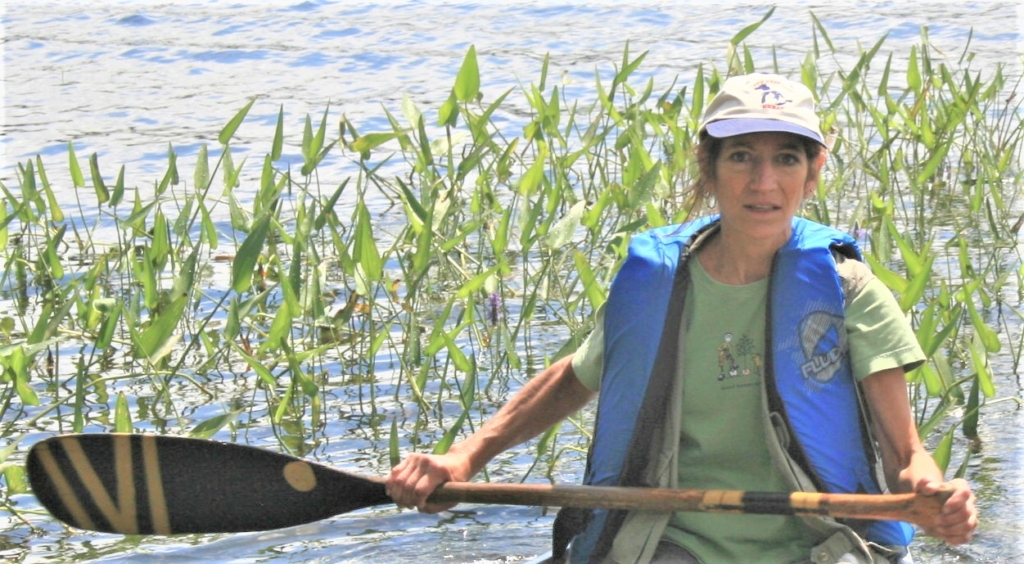

E-fuels for a net-zero future
E-fuels offer a promising alternative by utilizing renewable energy to produce sustainable fuels, thereby reducing carbon emissions, co-writes Keena Trowell, assistant professor in mechanical engineering. To achieve this, supportive policies, technological advancements and international collaboration must be in place to unlock the full potential of e-fuels in Canada’s transition to a net-zero future.
Driving forward electric vehicle innovation
Under the leadership of Ali Emadi, professor of electrical and computer engineering and mechanical engineering, a team of students is set to engineer the next-generation battery electric vehicle (EV). The students have embarked on a four-year, international challenge called EcoCAR and through a partnership with Brenda Vrkljan, a McMaster professor in the Department of Rehabilitation Sciences, they’re focusing on design for older adults.
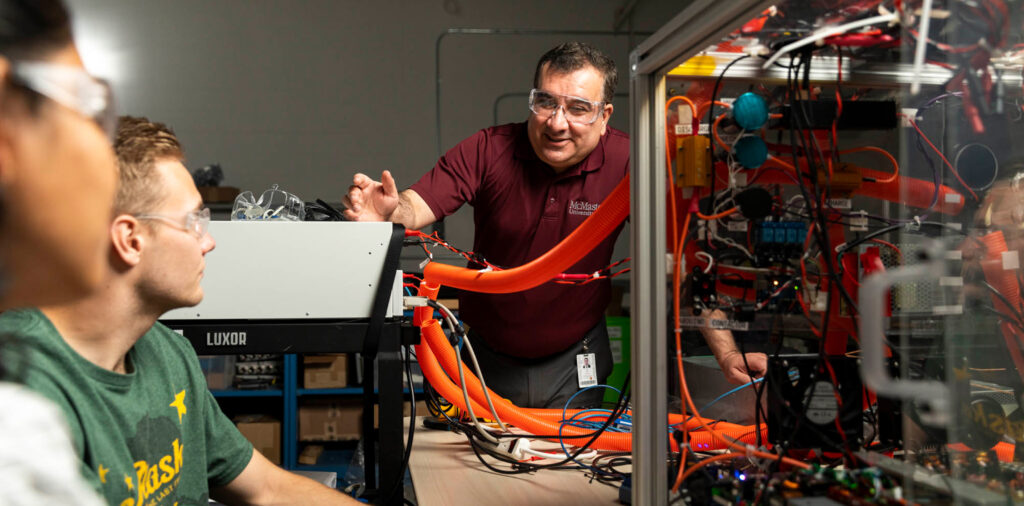
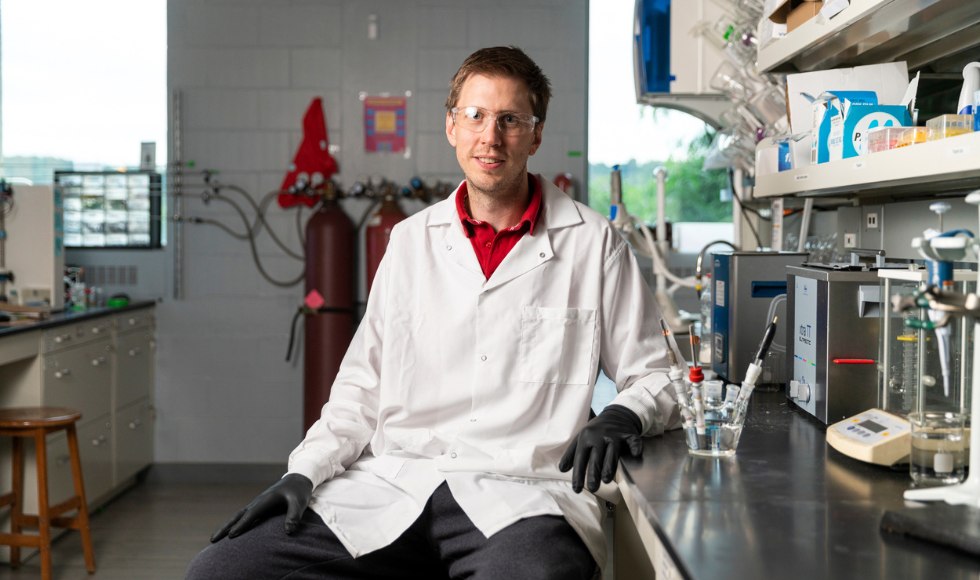
Nanoscale research might help convert CO2 waste into usable products
Chemical Engineering professor Drew Higgins (pictured) and postdoctoral fellow Ahmed Abdellah, used powerful magnification equipment to study at a nanoscale how synthetic materials that catalyze and convert carbon dioxide break down. It’s a tantalizing electrochemical process with potential to harvest carbon before it becomes air pollution and restructures it into the components of everyday products.
Addressing climate change impact on Black communities
Ingrid Waldron, the HOPE Chair in Peace and Health in the Faculty of Humanities, and McMaster Engineering researcher Zobia Jawed (pictured) are working together on a series of educational workshops for underrepresented communities in the Greater Toronto and Hamilton Area. Their goal is to bridge the gap between these communities and climate policymakers.
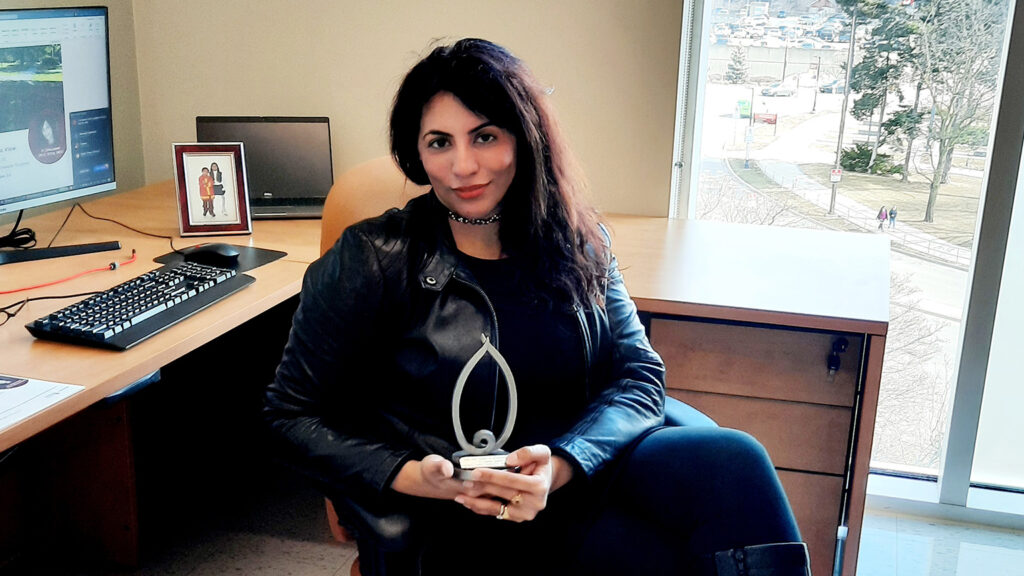
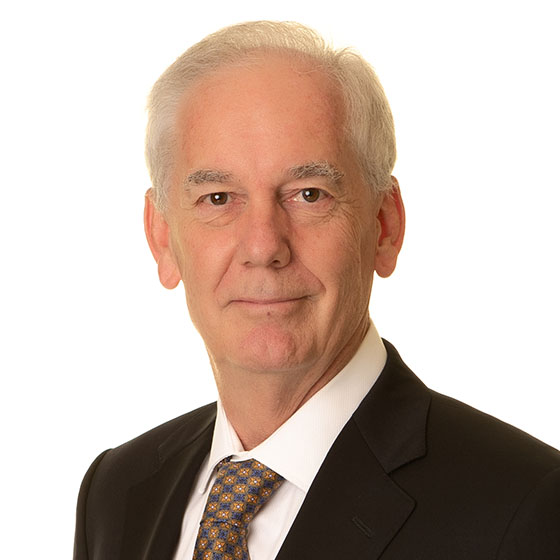
Improving the safety of Small Modular Reactors
Adriaan Buijs, professor of engineering physics has his sights set north, all the way to the Canadian Arctic, where his design of a nuclear reactor may one day provide reliable, safe and clean energy to the local communities. His NSERC-funded research will in part, address the concern of heat pipes breaking while the reactor is running, confirming that the temperatures encountered in such a system are indeed within the safe operating limit of the fuel.

